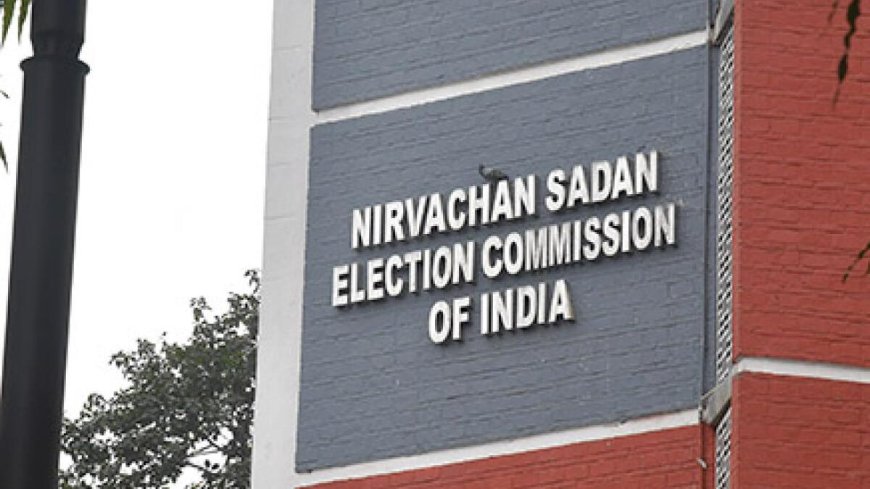State Elections 2024: Is the Election Commission Ready Amid Rising Scrutiny and Controversies?
As key Indian states gear up for elections in 2024, the Election Commission’s preparedness and impartiality are under sharp focus. This article examines its planning, digital innovations, and the controversies surrounding its credibility.

With a critical set of state elections scheduled in 2024, the spotlight is now firmly on the Election Commission of India (ECI). Tasked with ensuring free and fair polls across a diverse and politically complex nation, the ECI has long been viewed as one of India's most vital constitutional bodies. However, in recent years, questions about its neutrality, effectiveness, and technological readiness have surfaced, intensifying ahead of the upcoming state elections.
From managing voter rolls to deploying EVMs and tackling misinformation, the Commission faces both logistical challenges and a growing crisis of public trust.
For a comprehensive guide to the ECI’s mandate and historical background, visit the official Election Commission of India website.
States Going to Polls in 2024: High Stakes, High Expectations
Several politically significant states—including Maharashtra, Haryana, Jharkhand, and Jammu & Kashmir—are set to go to the polls later this year. The outcome will shape not just regional leadership but also the national narrative ahead of the 2029 General Elections.
Key Challenges for the Election Commission:
-
Ensuring voter turnout amidst rising political apathy in urban centers
-
Updating electoral rolls while preventing duplication or deletion
-
Preventing misuse of social media and fake news
-
Deploying adequate manpower and security forces
The Association for Democratic Reforms (ADR) offers valuable data on candidates, criminal records, and electoral transparency across state elections.
Preparedness Measures: What the ECI Has Put in Place
1. Digital Electoral Services Expansion
The Commission has enhanced the Voter Helpline App and NVSP Portal, allowing citizens to check their status, apply for corrections, and register online.
You can explore these digital services at the National Voters’ Services Portal.
2. EVM-VVPAT Integration
To bolster transparency, all polling stations will be equipped with Electronic Voting Machines (EVMs) integrated with Voter Verifiable Paper Audit Trail (VVPAT) devices. This move, officials say, ensures both efficiency and verifiability.
Read this explainer by LiveLaw on how VVPAT is reshaping electoral trust.
3. Deployment of Central Observers
The ECI is deploying a larger number of Expenditure Observers, General Observers, and Police Observers to monitor compliance with the Model Code of Conduct and election funding regulations.
Learn more about observer roles from Election Commission of India’s handbook.
Rising Controversies: Neutral Arbiter or Political Tool?
1. Allegations of Bias
Opposition leaders across the spectrum have alleged that the ECI is increasingly aligning with the ruling establishment. From delayed disqualification cases to selective enforcement of the Model Code, critics argue the ECI is losing its image of neutrality.
Notable incident:
In 2023, during the Karnataka elections, the ECI faced backlash for allegedly delaying action on hate speeches made by top political leaders. Civil society groups demanded stricter enforcement protocols.
2. Data Privacy Concerns
There have been concerns about leakage of voter data and unauthorized access by political parties. This raises serious questions about digital safety, especially in the context of growing use of AI and data analytics in campaign strategy.
The Wire has investigated recent instances of data misuse linked to voter outreach campaigns.
3. Delimitation in Jammu & Kashmir
The Commission has also come under fire for the redrawing of constituency boundaries in J&K, with critics claiming it disproportionately benefits certain political factions.
A detailed analysis of the J&K delimitation process is available on ORF's website.
Voter Trust: The Real Battle Ahead
Despite these controversies, the ECI continues to enjoy moderate public trust. However, this trust is not absolute—and a single mishandled election could cause irreparable reputational damage.
Civil society organizations, such as Common Cause India and Citizens for Democracy, are now actively campaigning for greater transparency, urging the ECI to publish more real-time data and audit reports.
To support electoral transparency efforts, visit Common Cause’s initiatives.
Conclusion: The Road Ahead for the ECI
The Election Commission of India stands at a crossroads. As it prepares for one of the most politically volatile electoral seasons in recent history, its actions—or inaction—will have deep consequences for democratic health in the country.
In the face of technological disruption, political polarization, and public scrutiny, only a demonstrable commitment to transparency, neutrality, and fairness will safeguard the ECI’s institutional credibility.
Whether it can rise to the occasion remains to be seen.

















































